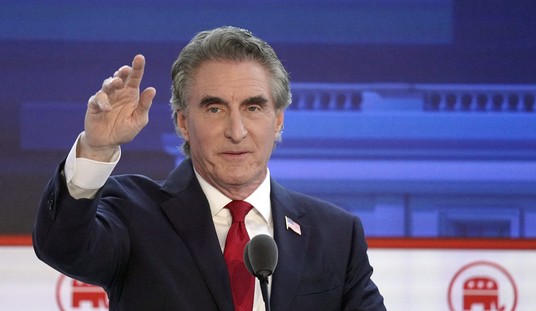(The opinions expressed in guest op-eds are those of the writer and do not necessarily represent the views of RedState.com.)
With the U.S. national debt in excess of $30 trillion, inflation at a 40-year high, and interest rates rising, it is clear that the current fiscal order is not sustainable. The United States is not likely to default on its debt, at least in the near term. However, it does appear that we are headed toward either stagflation, or the kind of zombie economy Japan has experienced for the past three decades. To escape these outcomes, the United States must implement new fiscal rules.
One option is for Congress to enact new statutory fiscal rules. For example, Sen. Mike Braun (R-IN) has proposed the S1253 Maximizing America’s Prosperity (MAP) Act. The MAP Act would cap federal spending, slowly dialing it back to 17.5 percent of GDP.
The Responsible Budget Targets Act proposed by Kurt Couchman, from Americans for Prosperity, is a Swiss-style fiscal rule that would mandate a balanced budget over the business cycle. This structural balanced budget rule would also be combined with a spending cap. These proposed fiscal rules would require new enforcement mechanisms, such as those incorporated by Sen. Braun in his FY 2023 budget proposal.
Braun’s FY 2023 budget would establish a point of order against budget resolutions that do not include a balanced budget. It would also establish a point of order against legislation that would increase net outlays any time that inflation exceeds 3 percent. The prospects for these new statutory fiscal rules in the current Congress are nil; however, it is possible that prospects could improve in the post-midterm election Congress.
An alternative approach is one chosen by the Swiss, incorporating new fiscal rules in the Constitution. Article V of the Constitution gives citizens, through their state representatives, as well as Congress, the power to propose amendments to the Constitution. Article V states “The Congress … on the Application of the Legislatures of two thirds of the several States, shall call a Convention for proposing Amendment … to the United States Constitution.”
Over the years, many resolutions calling for a balanced budget amendment have been proposed in Congress, but none of these resolutions has received the supermajority vote required for Congress to submit the proposed amendment to the state legislatures for ratification.
If American citizens want to impose fiscal rules on the federal government, they must take the bull by the horns. In other words, they can no longer leave fiscal decisions to the discretion of Congress.
A major step in that direction was taken in Congress this month with the introduction of House Concurrent Resolution 101, calling for an Article V Convention of States to propose Amendments to the U.S. Constitution and stipulating ratification by state conventions—effectively a vote of the people.
A companion Archivist Article V Application Counting & Calling Act, HR 8419, is designed to ensure Congress complies with its ministerial mandate to call an Article V Convention “upon the application of two-thirds of the states.” It parallels the Archivist’s current responsibility to count state ratification resolutions and certify when an amendment is added to the Constitution.
The current resolution states, “beginning in 1979, when Congress appears to have failed in its constitutional duty to count applications and call a ‘Convention for proposing Amendments.’”
This legislation would correct Congress’ constitutional failure in 1979 to call the Convention of States. Ironically, 39 states (five more than needed) had filed applications for a Convention to address high inflation amid rising debt. That resolution would also prohibit any proposed amendments from being added to our Constitution without a majority vote by the people for yes-pledged delegates in three-quarters of the state conventions.
The resolution also calls for Congress to set the time and place for an Article V convention for proposing fiscal constraints on the federal government unless the Archivist finds that congressional records do not support a finding that the 34 applications required to call a Convention of States for Proposing Amendments was ever achieved.
These resolutions are a significant victory in the fiscal responsibility coalition’s “Stop Inflating” campaign, which is meant to encourage citizens concerned about inflation, slow growth, and its impact on future generations to support a state-drafted, voter-approved, inflation-fighting, fiscal responsibility amendment to the Constitution.
Barry W. Poulson is Emeritus Professor of Economics at the University of Colorado Boulder.













Join the conversation as a VIP Member